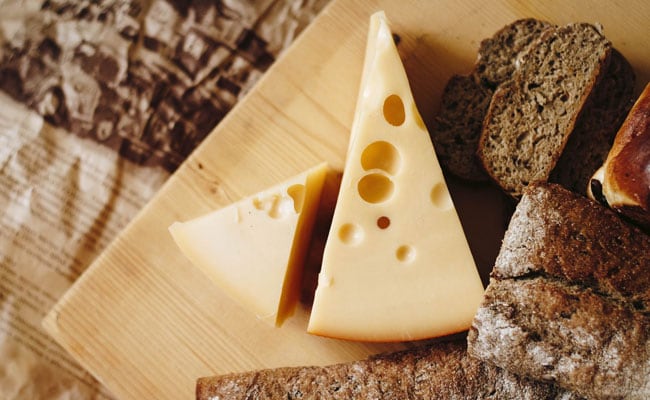[ad_1]
The fear of Covid-19 is back. With reports suggesting the spread of a new Covid variant, many of us have started taking the necessary precautions again. Among other potential risks of virus transmission, food still remains debatable. Can contaminated food spread Covid? There is no definite answer but new research suggests that Covid virus can linger on some foods, sometimes for up to a week. The Food Standards Agency (FSA) published research revealing how much time the COVID-19 virus can survive on foods and food packaging. The study was shared on the agency’s website.
Titled ‘Survival of SARS-CoV-2 on the surfaces of food and food packaging materials‘, the study was conducted in association with The University of Southampton. The researchers measured the rate of inactivation of the virus on the surface of various types of food and food packaging.
(Also Read: COVID-19: 5 Diet Tips For Boosting Immunity)
Which Foods Covid Virus Live On?
1. Cheese And Cold Meat:
The Covid virus was detected even after a week in cheddar cheese and sliced ham, which was stored in the refrigerator. The researchers explained that these foods are high in moisture, protein and saturated fats, which may offer protection to the virus.

Raw cheese and ham may harbour virus for a longer time.
Photo Credit: iStock
2. Apple And Olive
There was a significant drop in levels of virus contamination within an hour in apples and olives with a smooth surface. “We suggest that chemicals, such as flavonoids, present in the skin of apples and olives inactivate the virus,” clarified C.A. Bryant, S.A. Wilks and C.W. Keevil, authors of the study.
3. Baked And Pastry Items
The infectious virus could be found for several hours on the surface of bread crust and pastries like croissants and pain au chocolat but showed a decline after a day. It was noted that the coating of liquid egg wash may have an inhibitory effect on the virus. Eggs contain arachidonic acid and other unsaturated fatty acids, which possess anti-viral properties.
4. Foods With Uneven Surfaces
It was noted that foods like broccoli, peppers and raspberries, which have uneven surfaces, were detected with a high level of the virus for several days as the virus may get stuck in the small crevices.
(Also Read: Vitamin D Sufficiency May Help Coronavirus Patients Recover Faster: Study)

Broccoli may keep virus in its uneven surface.
Photo Credit: iStock
5. Food Packaging
The research revealed that the virus could live on plastic containers and cartons for days, but on aluminium packaging like pet cans, only for a few hours.
(Also Read: Are You Feeling Washed Out Post COVID? Rujuta Diwekar Shares Effective Tips)
The authors concluded that “There is currently no documented evidence that food and food packaging materials are a significant source and/or vehicle for the transmission of SARS-CoV-2. The potential implications for public health are unclear since inhalation of respiratory aerosols and droplets is considered to be the main route of SARS-CoV-2 transmission.”
“It should be noted that foods and packaging considered as part of this study were artificially inoculated with SARS-CoV-2 and therefore are not a reflection of contamination levels found on these foods at retail. However, there is the possibility of transmission through contaminated food if the food is in direct contact with the mouth and mucus membranes,” the researchers added.
Featured Video Of The Day
[ad_2]
Source link
